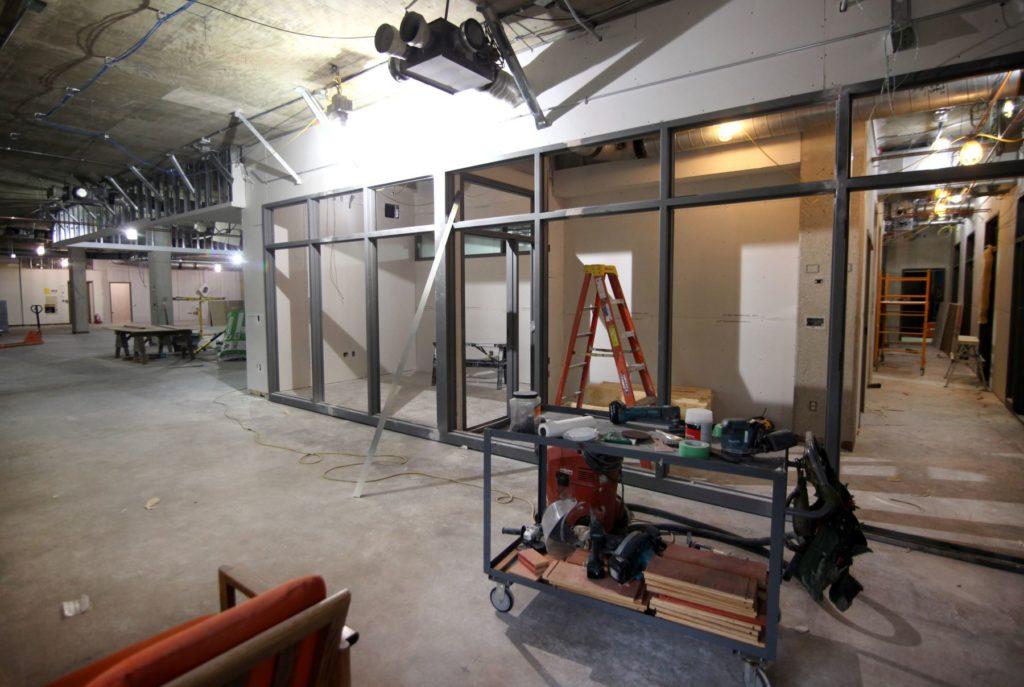Financial support from Lawrence University alumni and friends hasn’t waned amid the many challenges posed by the COVID-19 pandemic.
Contributions to the Lawrence Fund, a key funding mechanism to support students, the work of faculty, and the upkeep of the campus infrastructure, set a record with just over $4 million contributed during the 2019-20 fiscal year that concluded at the end of June. That surpassed the previous high of $3.9 million in 2015-16.
The Lawrence Fund is key on a number of levels. The funding affects almost every student and classroom, supporting the daily operation of the campus and bolstering everything from scholarships and study abroad opportunities to infrastructure upkeep, Conservatory performances, and athletics. The alumni donor participation rates in the Lawrence Fund also have an impact on national rankings and future funding opportunities. It’s estimated that without the Lawrence Fund and endowment earnings, each student’s tuition would increase by more than $10,000 a year.
Topping the $4 million mark for that fund for the first time is no small thing, said Cal Husmann, vice president for alumni and development.
“The Lawrence community continues to impress with its fierce loyalty,” he said.
The support comes at a time when institutions of higher education across the country are grappling with financial challenges unforeseen at the outset of the year. As the spread of COVID-19 turned into a global pandemic, Lawrence joined other schools in sending most students home for remote classes during spring term, resulting in significant revenue losses. Lawrence trimmed more than $3 million from its operating budget through new efficiencies, cuts in travel and non-essential expenses, and assorted staff furloughs. President Mark Burstein took a 20% pay cut for six months, and the leadership team that comprises the president’s Cabinet each took pay cuts of 10% over that same time period.
The University recently announced that the campus would reopen in the fall, with both students and faculty being given the option to be on campus or continue with distance learning. Classes will be delivered in a mix of in-person and remote formats.
Through it all, the generosity of alumni and other supporters has helped keep Lawrence moving forward despite the ongoing uncertainties.
“Thanks to support from the Lawrence community and high demand from high school seniors for a Lawrence education, the university enters these turbulent times in a strong position,” Burstein said. “Each effort to support our students, faculty, and staff during the pandemic has been made possible through extraordinary investments from our community. Lawrentians’ belief in the future of the transformative education they themselves received motivates us every day.”
Besides the Lawrence Fund record, other notable end-of-fiscal-year examples of generosity include:
- The Supporting Our Students (SOS) Emergency Fund, set up to help students with unexpected expenses caused by the pandemic, has raised more than $161,000 from nearly 600 donors.
- The Full Speed to Full Need (FSFN) campaign passed its $85 million goal and now sits at $87.3 million. The fund raises money to provide additional financial aid to students who show a demonstrated need.
- The overarching Be the Light! Campaign, ongoing since 2014 and scheduled to conclude at the end of this calendar year, continues to push toward its $220 million goal. The campaign ended the fiscal year at $214.2 million, a mix of cash donations, pledges, and deferred commitments from more than 15,800 donors.
The generosity that continued as the pandemic brought deep challenges over the past five months highlights the importance of the long-nurtured relationship between Lawrence and its alumni and community supporters, Husmann said. That the support never wavered is a testament to the bonds that connect Lawrentians through generations and the commitment to meet the needs of current and future students.
“During the pandemic, we surpassed the $85 million goal for Full Speed to Full Need, which is allowing us to provide more financial support to our students and their families,” Husmann said. “The community also made additional gifts for the SOS Fund, which helped hundreds of students navigate the sudden shift to distance learning during third term.”
The SOS funds have helped students with expenses ranging from emergency travel and temporary storage to short-term food and housing needs.
Other highlights on the fund-raising front during the just concluded fiscal year:
- When J. Thomas Hurvis ’60 established the endowed Riaz Waraich Dean for Career, Life, and Community Engagement, he challenged the Lawrence community to match the $2.5 million gift. Contributions toward that match now stand at $2.2 million, providing support for internships and other career exploration.
- Contributions toward the development of a Science Learning Commons in Youngchild Hall have grown to $429,000. The goal is $1.4 million.
- Kuo-ming Sung was named the first professor to hold the Wendy and KK Tse Professorship of East Asian Studies, established by Wendy and KK Tse ’81 as part of the Be the Light! Campaign.
- The goal of $1.5 million to renovate the second floor of Mudd Library into the Center for Academic Success was met. Work on the center is under way this summer, with expectations for it to open by the start of Fall Term. Other campus renewal work supported by gifts during the fiscal year include Brokaw Hall renovations, new bleachers in Alexander Gym, and new landscaping in front of the Buchanan Kiewit Wellness Center.
The Be the Light! Campaign saw new contributions totaling $32 million during the year, up from the $26 million to $27 million range in preceding years. To see that happen amid the uncertainties of the pandemic was particularly satisfying, Husmann said, noting that alumni and other supporters have shown an appreciation for the difficult challenges facing the University and its students as preparations are made for an academic year that’ll be unlike any that came before.
“I’ve been motivated and heartened to hear numerous accolades of support and encouragement from our community and the expression of this through financial support,” Husmann said. “We are grateful.”




